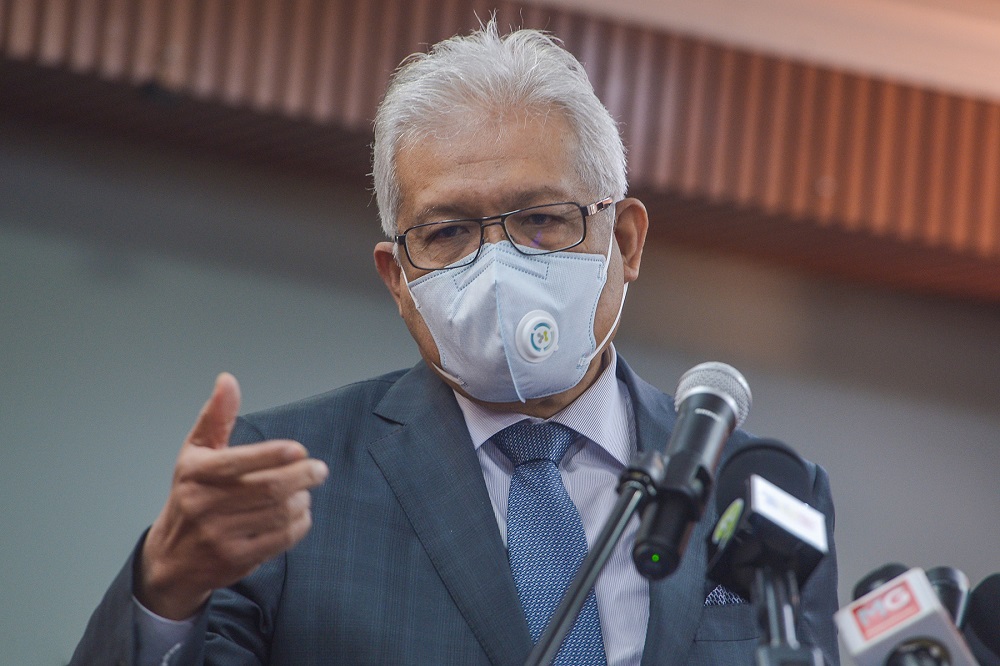Home Minister Datuk Seri Hamzah Zainudin says Malaysia is committed to continue fighting modern slavery holistically so that its victims can be protected. ― Picture by Miera Zulyana
JAKARTA, Jan 25 ― Malaysia is committed to continue fighting modern slavery holistically so that its victims can be protected, said Home Minister Datuk Seri Hamzah Zainudin.
He said the government’s focus was not solely on managing the entry of foreign workers but looking at effective methods to reduce the problem of human trafficking and forced labour.
“So that is why I have come with senior officials from our country. I brought them to solve legal problems and at the same time to inform what we are doing,” he said.
Hamzah said this at a dinner with more than 100 Malaysian diaspora here on Monday in conjunction with his working visit.
He was accompanied by the Chargé d’Affaires of the Malaysian Embassy in Indonesia Adlan Mohd Shaffieq, Inspector-General of Police Tan Sri Acryl Sani Abdullah Sani and Immigration Department director-general Datuk Khairul Dzaimee Daud.
Hamzah also explained that human trafficking and forced labour are cross-border issues that occur in many countries, whether developed or developing.
However, this matter is still unresolved despite various laws being enacted by the International Labour Organisation (ILO).
In another development, Hamzah said the government was reforming the management of foreign workers by introducing an e-locker system and setting up the ‘Pasukan Nukleus Single Border Agensi’ to strengthen control of the country’s entry gates.
The Malaysia My Second Home or MM2H programme has also been improved to ensure that only foreigners who fulfill certain criteria are eligible to enjoy the facility.
“We will do our best to rectify the country’s border problems,” said Hamzah.
As part of his visit, Hamzah had a meeting with his Indonesian counterpart, Muhammad Tito Karnavian and Minister of Marine Affairs and Fisheries, Sakti Wahyu Trenggono.
He said Malaysia and Indonesia had agreed to combat illegal fishing in the two countries’ territorial waters via joint patrols. ― Bernama

